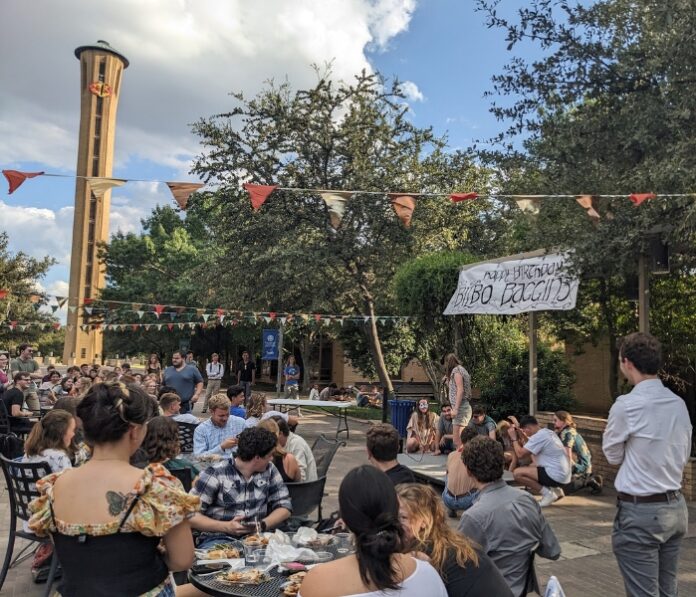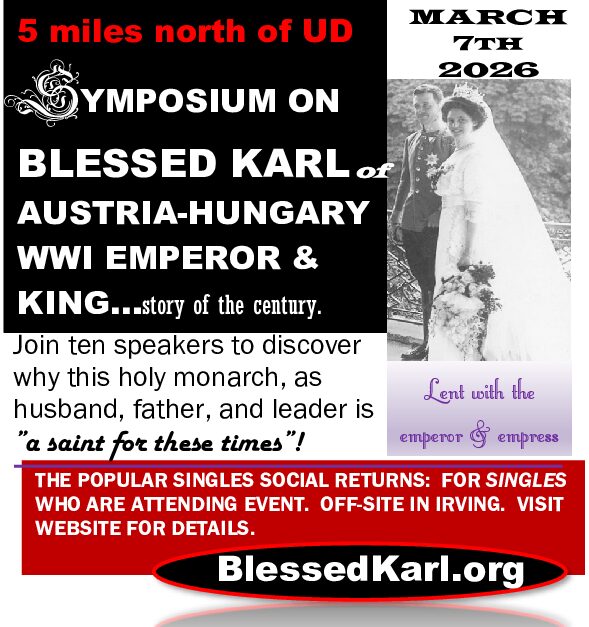Disclaimer: All articles published within the Commentary Section are the opinions of the respective authors and do not necessarily reflect the opinions of The Cor Chronicle
In a recent talk entitled “Where would Thomas Aquinas live in Middle Earth?” Dr. Donald Prudlo made a laudable defense of Gondor, the polis, as the ideal place for a life well lived. However, he placed Gondor in opposition to what he called “Shire Catholicism.” I believe that Dr. Pudlo unfairly criticized the tradition of Catholic communitarianism, seeing it as the abandonment of man’s political nature and the call to evangelization in favor of a return to nature.
Communitarianism indeed opposes much of the modern city, but it is deeply committed to man’s participation in society. Communitarianism, the philosophy of rootedness in one’s home, rejects the false dichotomy of nature and the city, uniting them within the tradition’s fundamentally Catholic political philosophy.
The pre-modern polis, a political community made up of a small urban area and surrounding countryside and villages, differs essentially from the modern city.Whereas in a polis the urban and the rural are closely connected, in an industrial city, nature is primarily something to be exploited for wealth. This Baconian perspective can be explained by the lack of the love of home and by the general separation from nature of the entire bourgeois and merchant class.
In reaction to this denigration of nature, the Romantic movement embraced the natural world. In the process, however, it rejected society and culture as an unnatural corruption and criticized any attempts to tame or cultivate nature through art.
Thus, on the one hand is the way of life of industrial capitalism, defined by the pursuit of unlimited economic growth and upward mobility. Its fruit is a life uprooted from home, tradition and nature. On the other hand is the Romantic denial of the social nature of man and its siren song of a supposedly pure, isolated existence.
The Catholic Communitarian tradition rejects both extremes, uniting community and rootedness as intrinsic elements of the concept of “home” and affirming both as essential to the task of bringing the world back to Christ.
Rootedness in one’s home, a true “Shire Catholicism,” is not limited to a household. A home encompasses one’s hometown, its natural environment and the land on which the community lives. It also encompasses the wider political community and an extended family, including grandparents and grandchildren.
To be rooted in a home means to love a community in its completeness, with loyalty and perseverance. It includes everything from caring for the land to caring for one’s fellow citizens in all their sinfulness.
Does such a vision exclude evangelization? Far from it. Communitarian life is not about fleeing to the wilderness to create a new community separated from the world, but rather about rooting oneself in a local community, harmonizing it with nature and sanctifying it.
But what about the rest of the world? A little over a century ago, a French nun asked the same question. The answer she found has transformed the world: “My vocation is love!” St. Thérèse realized that God does not want everyone to be a missionary in a foreign land. Even though different members of the Body of Christ have different callings, all ultimately have the same vocation: to love.
The Catholic Communitarian ideal is nothing less than the Little Way. It can be lived in different ways, but each is rooted in community, both particular communities and the universal Polis of God.
Overseas missionaries need the prayers of humble nuns like St. Thérèse. Just so, those who wish to “take back the institutions” of modern society require formation from solid families and communities whose members sacrifice other ambitions in order to root their families and homes.
Likewise, just as missionaries aim to bring more souls into the nun’s contemplative union with God, so political and economic leaders ought to serve the “little flowers” who root where they are planted, rather than encouraging them to uproot themselves.
Thus, the Little Way gives the Shire its essential place in Catholic social order. It cannot be a coincidence that the University of Dallas, the home of the “Hobbitish Class” of Spring Rome 2024, bears such a devotion for St. Thérèse that students write folk songs dedicated to her.
“The Little Way” is the theological basis for a communitarian way of life; it overcomes the dichotomy between caring about the world and living a humble life rooted in home. Let us, then, embrace the humble virtues of the Shire, so that by rooting ourselves in our local communities we may help the world become rooted again in Christ.
William Saylor is a junior politics major.

